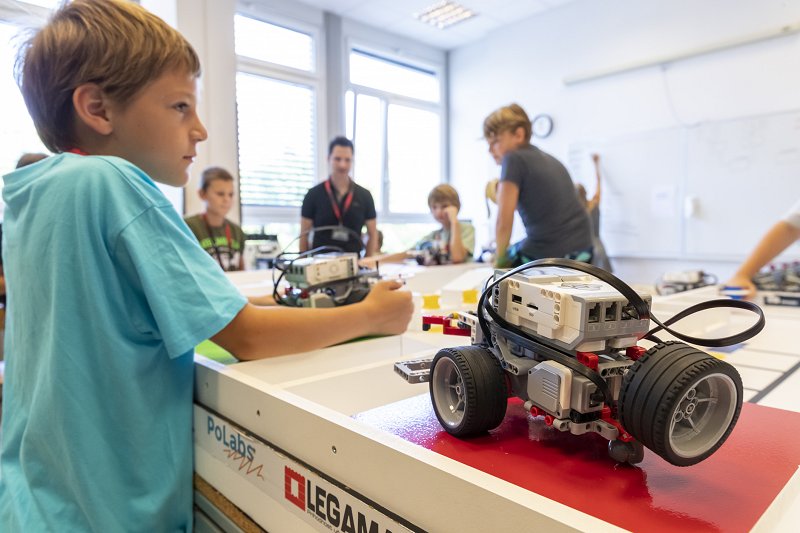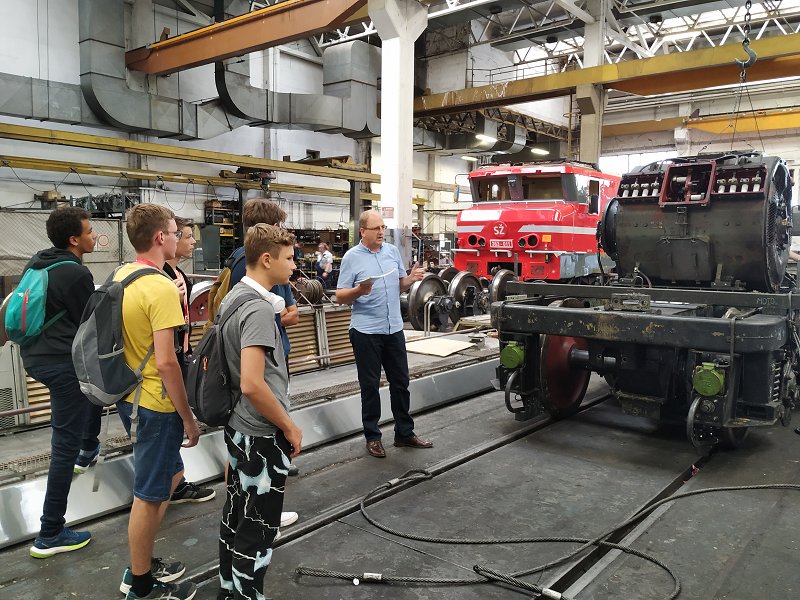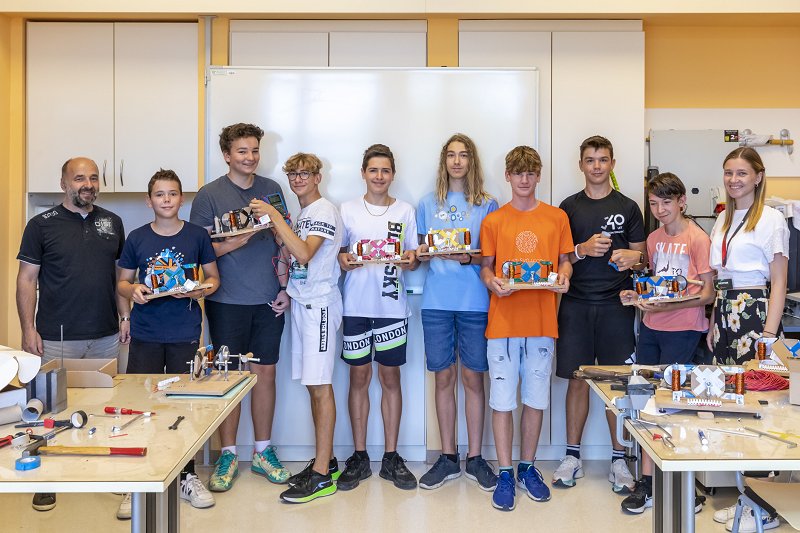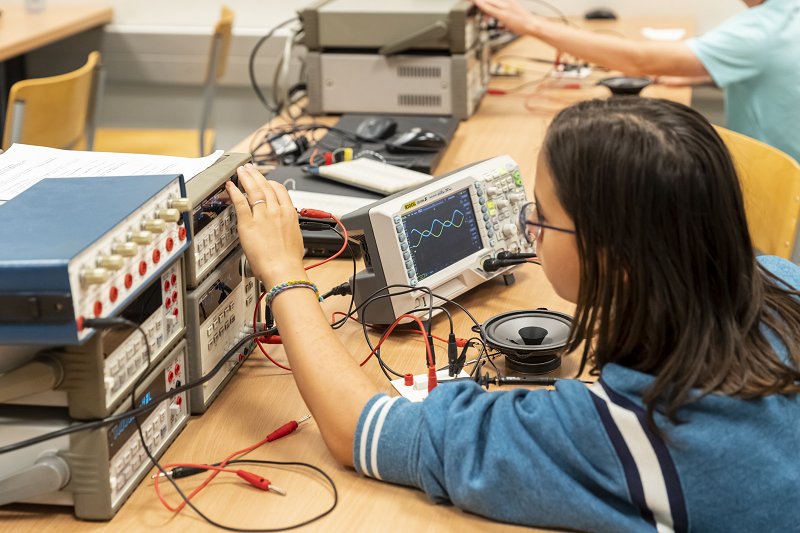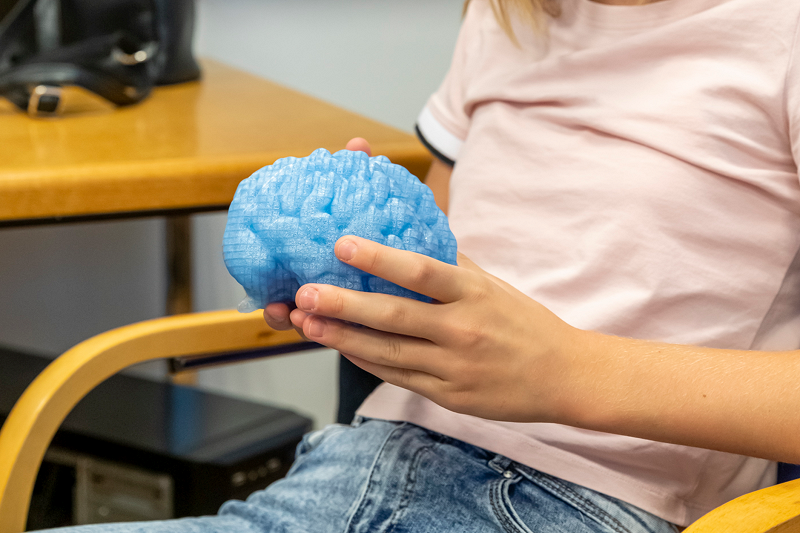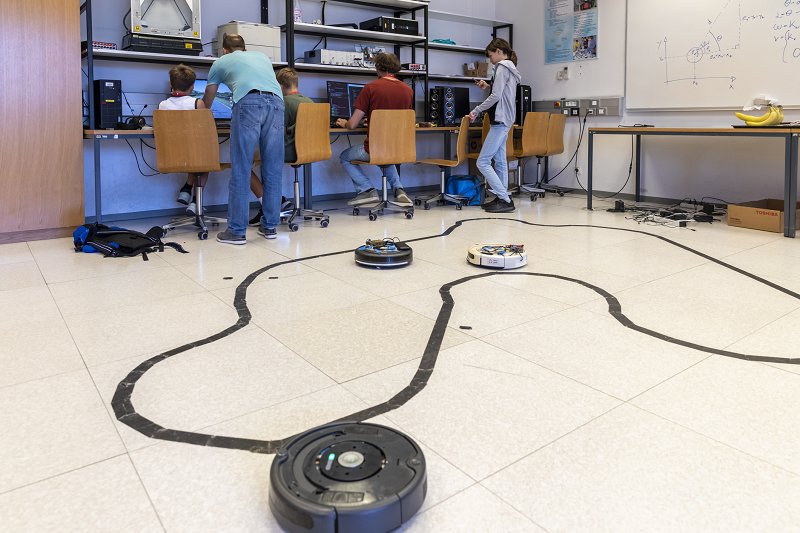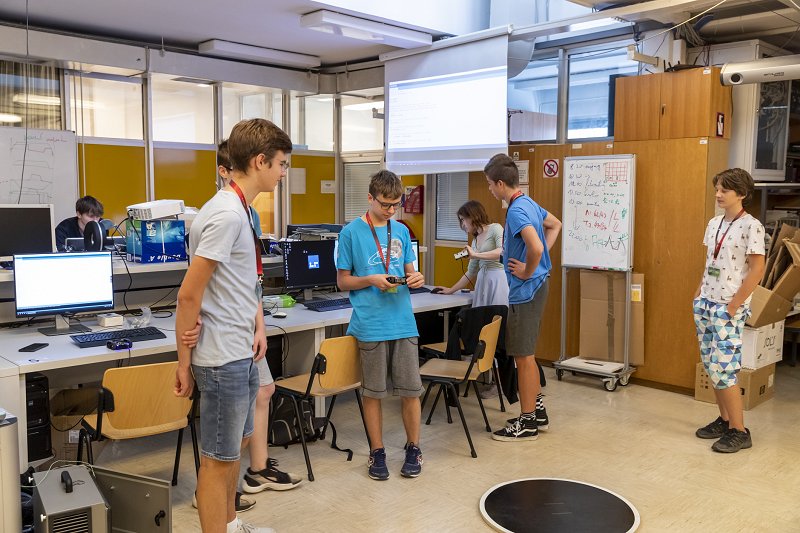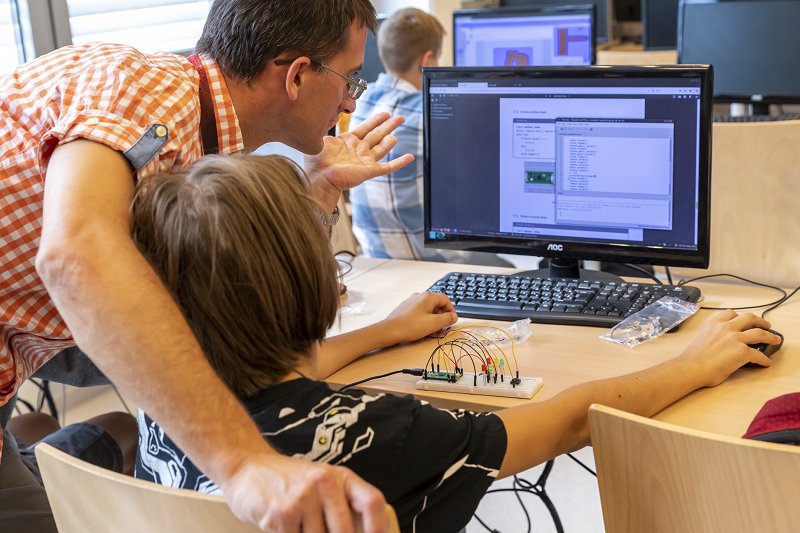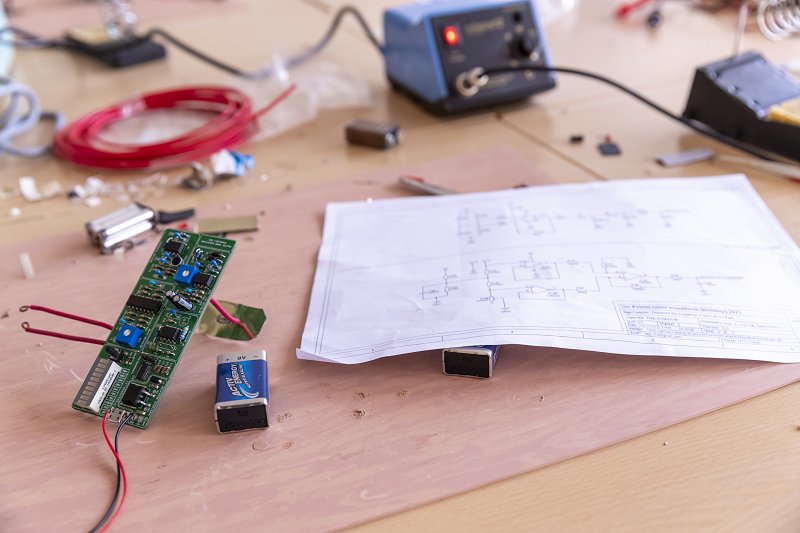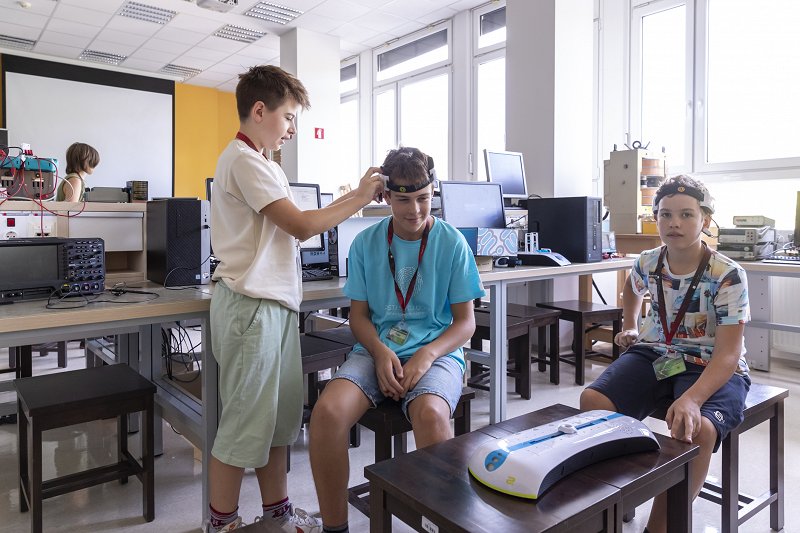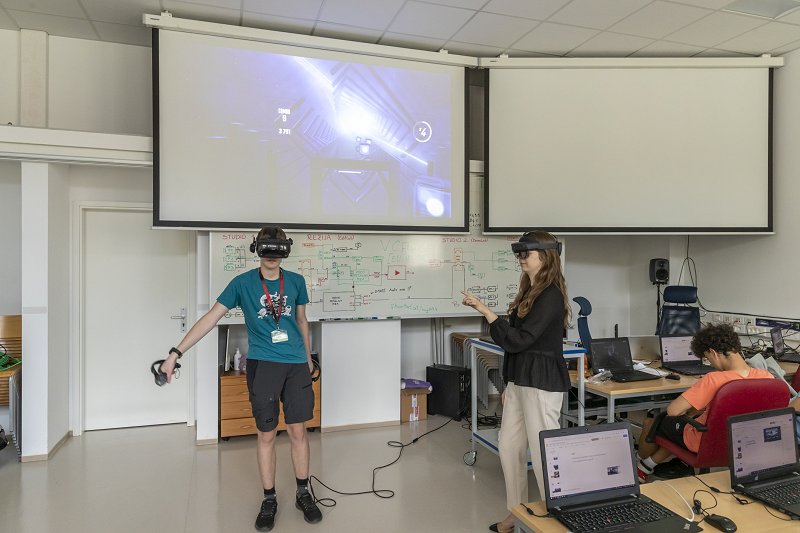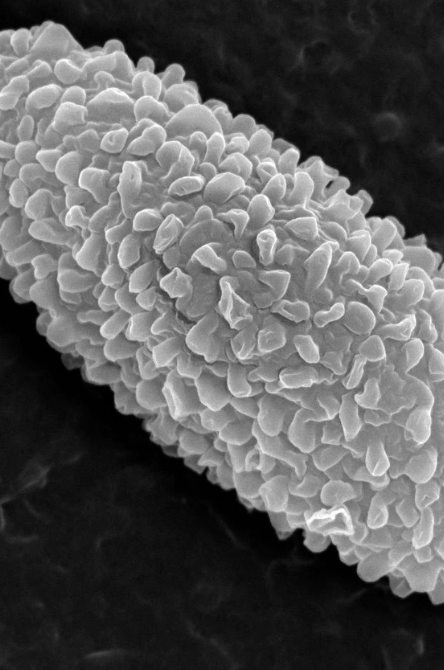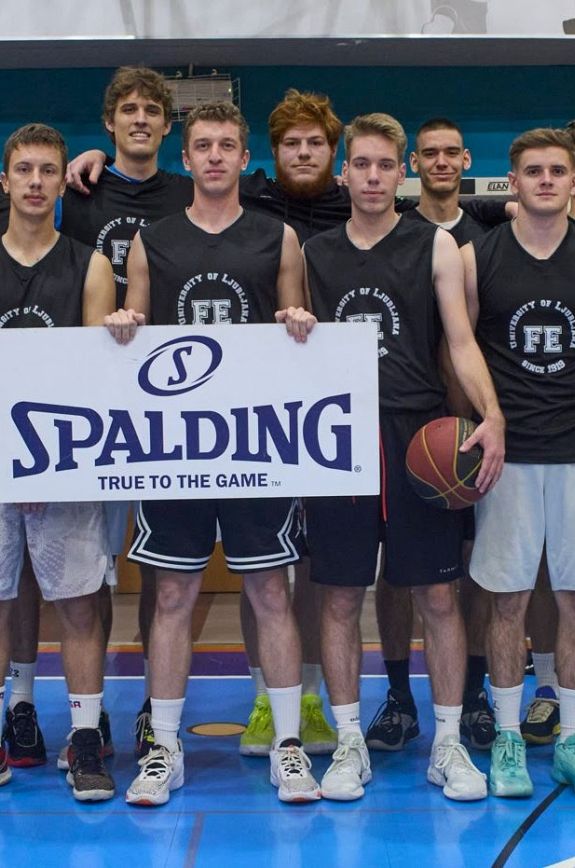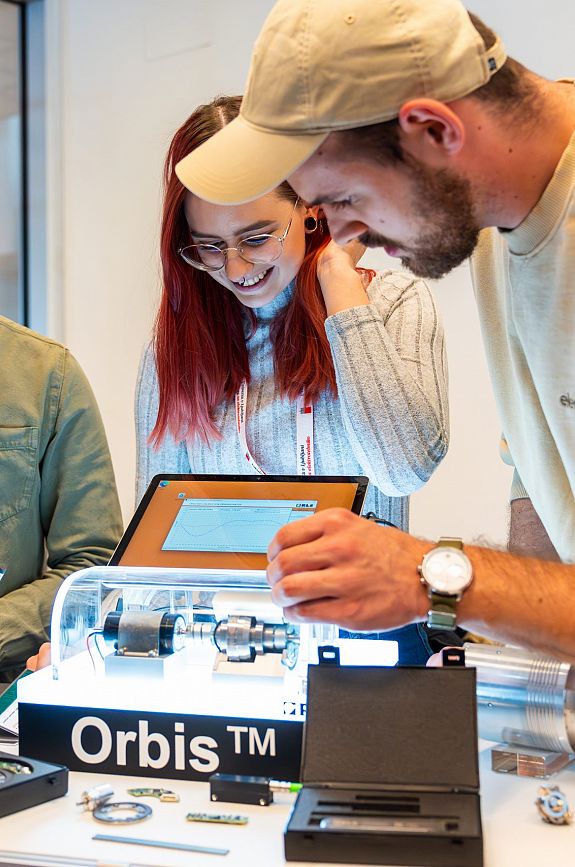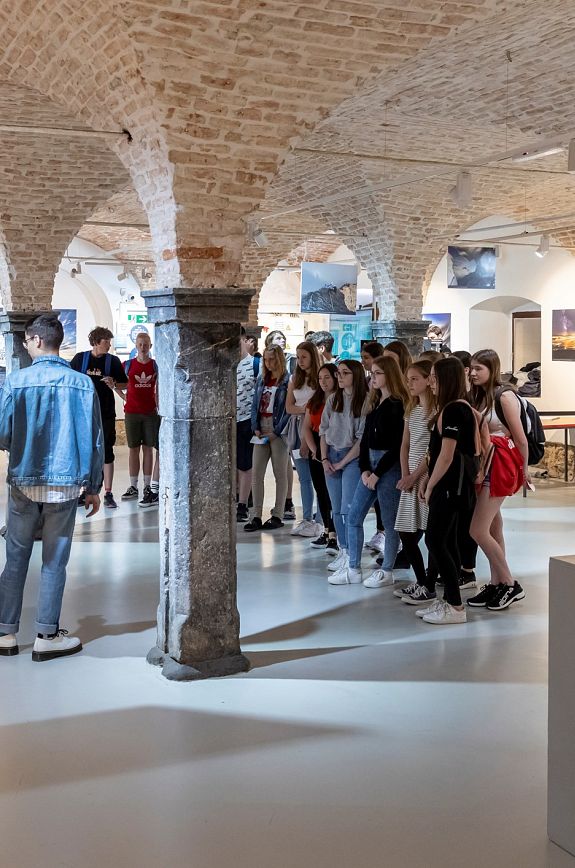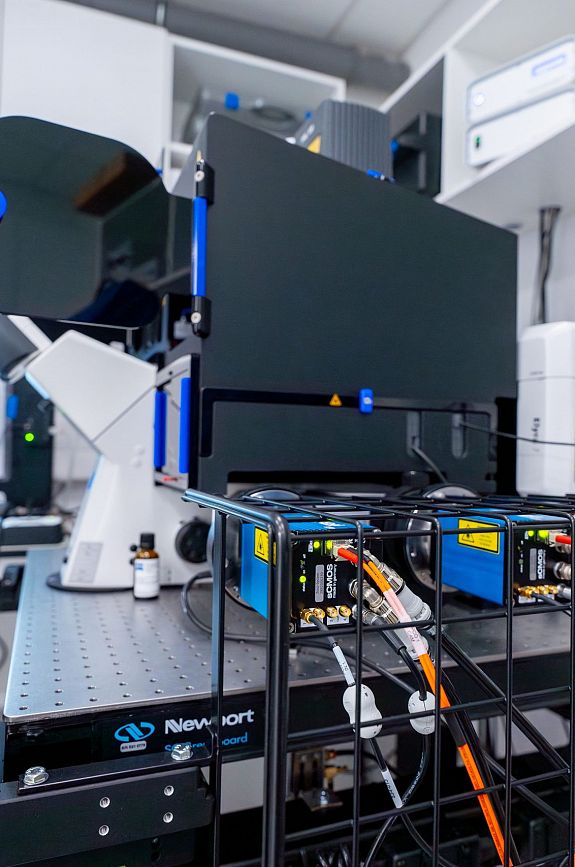Embracing new skills - PTIT 2022
Date of publication: 30.8.2022The Faculty of Electrical Engineering at the University of Ljubljana hosted the 23rd Innovative Technologies Summer Camp from 22 to 26 August, which this year brought together 111 children in 11 different workshops. Under the guidance of mentors, participants explored the world of modern electrical engineering and multimedia and met some high-tech companies and institutions.
Participants in the LEGO Stormtroopers workshop were introduced to the basic concepts of controlling autonomous mobile systems and to the technical and software features of Lego Mindstorms EV3 kits. To complete the task, participants had to design, build and program mobile systems. By the end of the workshop, they had mastered skills in sensors, mobile system control concepts and programming. At the end of the workshop, participants competed in a friendly competition with their systems.
"I liked it best when we built a robot and could decorate it a bit", said one participant.
The Electric Vehicle Workshop introduced participants to the key features of electric vehicles. They explored how to select the individual components of an electric bicycle, and verified their theoretical background through experimental measurements. They checked the functioning of the individual components, fitted them to the bike and verified the performance of the electric bike! During the excursion, the workshop participants also got to know SŽ Traction and Technics.
One participant really liked the tour of the SŽ Towing and Engineering company and the workshop and said, "I'll probably come again next year".
Participants in the workshop No electricity? Make it yourself! were given a theoretical overview of how electricity generators work. Participants had to determine the required power, the appropriate rotational speed of the generator and the way in which the power is mechanically transferred from the crank to the generator. The theoretical part was followed by a practical part where they made the generator, the mechanical transmission and the electrical connections. The resulting electrical voltage was transformed or diverted and led to the consumer - the luminaire. The aim of the workshop was to learn about the process of generating electricity, which is why the participants also went to the World of Energy (Krško) and the Fala Museum of Electrical Transmission (Laško).
The participants enjoyed the excursion very much, learning how power plants work and how much energy we need to produce.
The Let's Master Electronics workshop opened a window into the world of electronic elements, their properties and uses. Using computer simulations, they designed and built an active speaker step by step. The speaker was then tested and its properties measured, and participants built their own speaker to the point where it connects to their phone and plays the music of their choice. More importantly, participants learnt how the speakers work. The workshop also included an excursion to Hella Saturnus Slovenia.
"I met a lot of new people, I learned a lot of new things, which was the reason I came. On the other hand, the tutors were also very helpful, I personally really liked the workshop, I'm very impressed", said a participant of the Mastering Electronics workshop.
Participants in the Digital Radiologists workshop learned about the work of radiologists and used their knowledge of AI-based solution design to create a "digital radiologist". A digital radiologist is actually an artificial intelligence algorithm, which is becoming more and more successful in the diagnosis and prognosis of diseases. After creating their radiologist, the task was not over yet, as participants had to check its performance! As part of the workshop, they also saw the work of radiologists at the University Medical Centre Ljubljana.
"We work on medical image analysis and artificial intelligence programming in Python. We also 3D print products that we have created ourselves", said a participant in the Digital Radiologists workshop. One participant printed her own brain.
The Knight Without a Steering Wheel workshop introduced participants to the field of autonomous mobile systems and artificial intelligence. They worked in groups on robotic vacuum cleaners equipped with their own Raspberry Pi embedded camera system. The camera on the mobile system was pointed towards the ceiling, where a network of special badges was produced. The badges' positions were entered into a machine vision localisation program, which detected the badges' positions in the image and continuously recalculated the mobile system's position in space. The participants developed a program to control the mobile system with a keyboard, and then used the position information to write control algorithms to autonomously drive the mobile system between different targets in space. Using the sensors on the robotic vacuum cleaner, they also implemented an algorithm to automatically guide the mobile system along a line and to act appropriately when obstacles are detected. The workshop also taught them the basics of speech recognition and speech synthesis, which allowed them to implement a system for voice communication with the mobile system in Slovenian. The speech recogniser was used so that when the mobile system received a voice command, it performed a specific action, and the speech synthesiser enabled the mobile system to respond to the user. They also wrote different algorithms to control a coloured LED strip, which was mounted on the front bumper of the mobile system and indicated the current actions of the mobile system with light signs.
One participant said of the workshop: 'We are redesigning mammals to make them more intelligent. We are upgrading them so that they can move with our voice commands. We do a lot of programming so it's a lot of fun!".
RoboSumo workshop participants learnt how to use and program conventional industrial and collaborative robots. After an introductory lecture covering robotics and robotic terms, participants started hands-on work on collaborative robots to build a working robotic application. They also learned about programming mini sumo robots (from basic programming to tactics for sumo fights) and participated in a mini robo sumo tournament! As part of the workshop, the participants also visited the "Jožef Stefan" Institute.
The workshop participants were really looking forward to the mini robo sumo tournament, with one participant saying, "This is my first RoboSumo workshop where we work with small robots. I can't wait for the tournament!".
At the ScratchMasters workshop, participants learned the basics of programming with blocks in CODE, SCRATCH and MICRO:BIT programming languages. Although Scratch is basically very useful for programming games, participants used it to learn programming techniques. Participants learned how to draw, use loops, conditional statements, messages and cloning. They built interesting programmes in geometry, iterations, recursion, dialogues and quizzes. Participants were also given a BBC Microbit microcomputer with a display on which they executed programmes written in Micro:bit. At the end, each participant presented their project.
From Electrons to Stars workshop participants learnt about the basic building blocks of electronic circuits and the physical laws that underpin them. They found out that the same laws also determine how some sensors work and then built a sensor for electrical conductors hidden in walls. The workshop also looked at how to use a computer to solve mathematical problems encountered in circuit design and visited an experimental nuclear reactor in Podgorica near Ljubljana.
"I think the camp is a great idea, especially as it stimulates young people's interest in the subject of engineers and electrical engineering", said one participant, while another said he couldn't wait to go back.
In the workshop From laser to e-paper, participants made a real laser distance meter to measure the size of their room or the height of their ceiling. Each participant learned how to build electronics, learned about lasers and e-paper and finally tested the accuracy of their device.
"I really like the tutors because they are a lot of fun", said a participant in the From Laser to e-paper workshop.
Participants of the VIRTUAL= ENTERTAINMENT workshop, organised by the Faculty in cooperation with the Sieva Development Centre, learn about new technologies of augmented reality (AR), mixed reality (MR) and virtual reality (VR). Participants received lectures, tried out VR and MR goggles, relaxed by playing VR games and developed their own AR application using the Unity game engine and the Vuforia software tool.
One participant said, "I learned a lot of new things, especially how to use different 3D modelling software."
